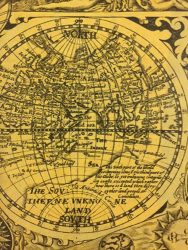Across all my classes the subject of memory and identity has been brought up. In sociology we discussed what is a nation, in politics we talked about sovereignty and in ASTU we touched upon what collective memory entails.
September 15th is an important date in several Latin American countries, I thought about this day while reading Kate Douglas’ essay. It made me think about how we remember our historic past, and the ways we celebrate our identity and contribute to public memory.
In my country, Independence Day is a very solemn celebration. Since we are young we are encouraged to be patriotic and always remember that part of our country’s history. There are different ways to show our cultural connection, with this day, for example, wearing the shirt of our national soccer team, or wearing the colours of the flag. There is also a wider celebration across countries and a sense of solidarity with our fellow Latin Americans on these days. Despite not being in my country for this day, I was congratulated by other Latin American students who were also celebrating independence day, and I realized how strong a shared historical past can be. It may be easier to identify ourselves with something that we share even if it happened a few centuries ago and even if we were not even alive to witness it. But it is the collective memory of that event that shapes our identities and strengthens the solidarity we feel towards each other.
Independence Day, it’s not only about pride but also a time for reflection on the struggles a country had in order to emerge. It reminded me of Douglas argument on the selfie as new ways of young people acknowledging and engaging with the past and how they witness trauma sites. These are two different situations but the question that comes to mind is: how do we remember and ‘honour’ our past? It’s a question that requires us to look at different aspects of our culture as a generation but most importantly makes us realize the importance not so much of how we do it , but how do we continue to engage with it and avoid neglecting the value of our past.
